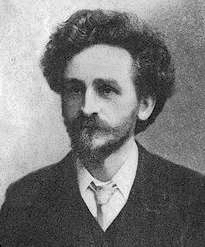James Allen (1864-1912), through his seminal work “As a Man Thinketh” and other influential books, laid out a profound yet practical philosophy of success based on the power of thought. As he famously wrote, “All that a man achieves and all that he fails to achieve is the direct result of his own thoughts.” This foundational principle forms the basis of his entire teaching about success and personal development.
The Power of Thought
At the heart of Allen’s philosophy lies the understanding that thoughts are not mere passive observations but active forces that shape our reality. “Mind is the Master power that moulds and makes, and Man is Mind, and evermore he takes the tool of Thought, and, shaping what he wills, brings forth a thousand joys, a thousand ills. He thinks in secret, and it comes to pass: Environment is but his looking-glass.”
This isn’t merely positive thinking; Allen presents it as an immutable law of life. Just as a gardener understands that the seeds they plant determine their harvest, we must understand that our thoughts inevitably produce corresponding results in our lives.

Character as Destiny
Allen teaches that character, not circumstances, is the determining factor in success. He writes, “Circumstances do not make the man, they reveal him.” This reverses the common assumption that our conditions determine our thoughts and character. Instead, he demonstrates how character, built through consistent thought patterns, creates our circumstances.
The process works like this: Our thoughts shape our character, our character determines our actions, and our actions create our circumstances. Therefore, to change our circumstances, we must begin by changing our thoughts. This puts the power of transformation firmly in our own hands.
The Garden of the Mind
Allen frequently uses the metaphor of gardening to explain mental processes. Just as a garden left unattended will grow weeds, a mind left to random thoughts will produce chaos. He teaches that we must become careful gardeners of our minds, consciously planting and nurturing beneficial thoughts while removing harmful ones.
This requires vigilance and persistence. We must:
- Recognize that every thought has consequences
- Take responsibility for our mental state
- Cultivate positive thought patterns
- Remove negative mental habits
Purpose and Vision
Success, according to Allen, requires clear purpose and vision. “Until thought is linked with purpose there is no intelligent accomplishment.” He teaches that aimless thoughts lead to aimless lives, while focused, purposeful thinking leads to achievement.
This purpose must be more than mere wishful thinking. It requires:
- Clear definition of goals
- Strong desire for achievement
- Persistent focus
- Aligned action
The Role of Circumstance
While many focus on changing external circumstances, Allen teaches that this approach is backward. “Men do not attract what they want, but what they are.” This profound insight suggests that our external conditions reflect our internal state.
This doesn’t mean we should ignore circumstances, but rather understand their true nature as effects rather than causes. When we focus on internal development, external circumstances naturally adjust to reflect our new mental state.
The Law of Sacrifice
Allen teaches that all achievement requires sacrifice. Not the sacrifice of others or of ethical principles, but the sacrifice of lower pleasures for higher ones, of immediate gratification for long-term achievement. “He who would accomplish little must sacrifice little; he who would achieve much must sacrifice much.”
This sacrifice primarily involves:
- Disciplining our thoughts
- Controlling our impulses
- Dedicating time to self-improvement
- Persisting through difficulties

The Path of Peace
Interestingly, Allen links success with inner peace. He teaches that true achievement cannot come from a state of internal conflict. “Calmness of mind is one of the beautiful jewels of wisdom. It is the result of long and patient effort in self-control.”
This peace comes not from external circumstances but from:
- Understanding life’s laws
- Accepting responsibility
- Maintaining mental equilibrium
- Acting with wisdom
Practical Application
Allen’s teachings lead to practical steps for achievement:
Mental Diet
Just as we care about what we eat, we must care about what thoughts we consume and entertain. We should consciously choose thoughts that support our goals and aspirations.
Character Building
We must focus on developing positive character traits through consistent thought patterns aligned with our highest ideals.
Purposeful Action
Our actions should flow from clear purpose rather than random impulse or external pressure.
The Modern Relevance
Allen’s teachings remain remarkably relevant today because:
- They address universal principles
- They focus on what we can control
- They provide practical methods
- They integrate success with character
The Path Forward
Success through Allen’s approach requires:
- Consistent thought control
- Clear purpose
- Patient persistence
- Character development
As he reminds us, “The greatest achievement was at first and for a time a dream. The oak sleeps in the acorn; the bird waits in the egg; and in the highest vision of the soul a waking angel stirs. Dreams are the seedlings of realities.”
The journey to success begins with taking control of our thoughts, maintaining that control through discipline, and persistently working toward our goals while developing our character. This creates not just external success but the internal qualities that make that success meaningful and sustainable.
Remember Allen’s assurance: “Good thoughts and actions can never produce bad results; bad thoughts and actions can never produce good results. This is but saying that nothing can come from corn but corn, nothing from nettles but nettles. Men understand this law in the natural world, and work with it; but few understand it in the mental and moral world (though its operation there is just as simple and undeviating), and they, therefore, do not cooperate with it.”

